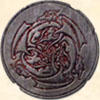Illusionist
A specialist in the school of Illusion. Illusionists tend to be flamboyant, outgoing, and self-assured. Remarkably creative, they enjoy art, literature, poetry, and music, and many are accomplished artists in their own rights. Though their aptitude for scholarly pursuits is as high as any other specialist, illusionists tend to spend less time involved in research, preferring the company of people to the isolation of the laboratory. Illusionists enjoy the hustle and bustle of urban life, and usually maintain well-furnished homes in the heart of a city. They usually have a host of friends and acquaintances, and are loyal and loving spouses. Illusionists earn a living as entertainers, artists, mercenaries, teachers, and shopkeepers
Allowed Races: Humans and gnomes are eligible to become illusionists. It's not clear why elves and half-elves are unable to specialize in this school, though some speculate that the same inborn magical resistance that helps make them immune to charm spells also limits their ability to focus the magical energy needed to create illusions.
Ability Requirements: The somatic components of most medium-level and high-level illusions require precise physical manipulations. Therefore, to specialize as an illusionist, a wizard must have a minimum Balance score of 16.
Saving Throw Modifiers: Illusionists add a +1 bonus when rolling saving throws against any type of illusion. Opponents suffer a -1 penalty when rolling saving throws against illusion/phantasm spells cast by an illusionist. These modifiers are only used against illusions where saving throws are applicable.
Bonus Spells and Acquired Powers: An illusionist can memorize an extra spell at each spell level, providing that at least one of the memorized spells is from the school of illusion.
When an illusionist reaches 18th level, he adds a +1 bonus when saving against illusions cast by non-illusionists. (Since this is in addition to his natural +1 modifier, his saving throw bonus against these attack forms effectively becomes +2.)
When an illusionist reaches 20th level, he acquires the ability to cast a special dispel illusion spell three times per day. The spell has a range of 30 yards and a casting time of 1. To cast this spell, the illusionist merely points at the subject and concentrates; no somatic or material components are required. This spell enables the illusionist to dispel any type of phantasmal force, including those augmented by audible glamer; however, dispel illusion is effective only on phantasmal force spells cast by non-illusionists.
Dispel illusion has a base chance of success of 50 percent. For each level of experience that the illusionist exceeds the caster of the phantasmal force, the chance of success is increased by 5 percent. For each level the caster exceeds the illusionist, the chance is reduced by 5 percent. (For instance, if a 20th-level illusionist attempts to dispel a phantasmal force created by a 15th-level mage, the illusionist's chance of success is 75 percent.) If an illusionist casts dispel illusion at a subject that isn't an illusion, there is no effect, but the attempt counts against the illusionist's daily limit of dispel illusion spells.
Oppositional Schools: An illusionist cannot learn spells from the schools of necromancy, invocation / evocation or abjuration.
Ethos:Illusionists have sharp minds, but they are not particularly deep thinkers. Pragmatic by nature, they accept the impermanence of all things, believing that any attempt at developing an all- encompassing philosophy to explain the meaning of existence is ultimately futile and therefore a waste of time. Illusionists tend to be of good and neutral alignments, since wizards inclined toward evil usually opt for a specialization they perceive as being more powerful.
Because of their forceful personalities and sharp minds, illusionists make good leaders of an adventuring party, but they also make equally good lieutenants and strategists. Because low-level and medium-level illusionists usually lack defensive spells, a party must provide bodyguards or other protection to keep them healthy; such illusionists are best kept in the center of the party when traveling.
